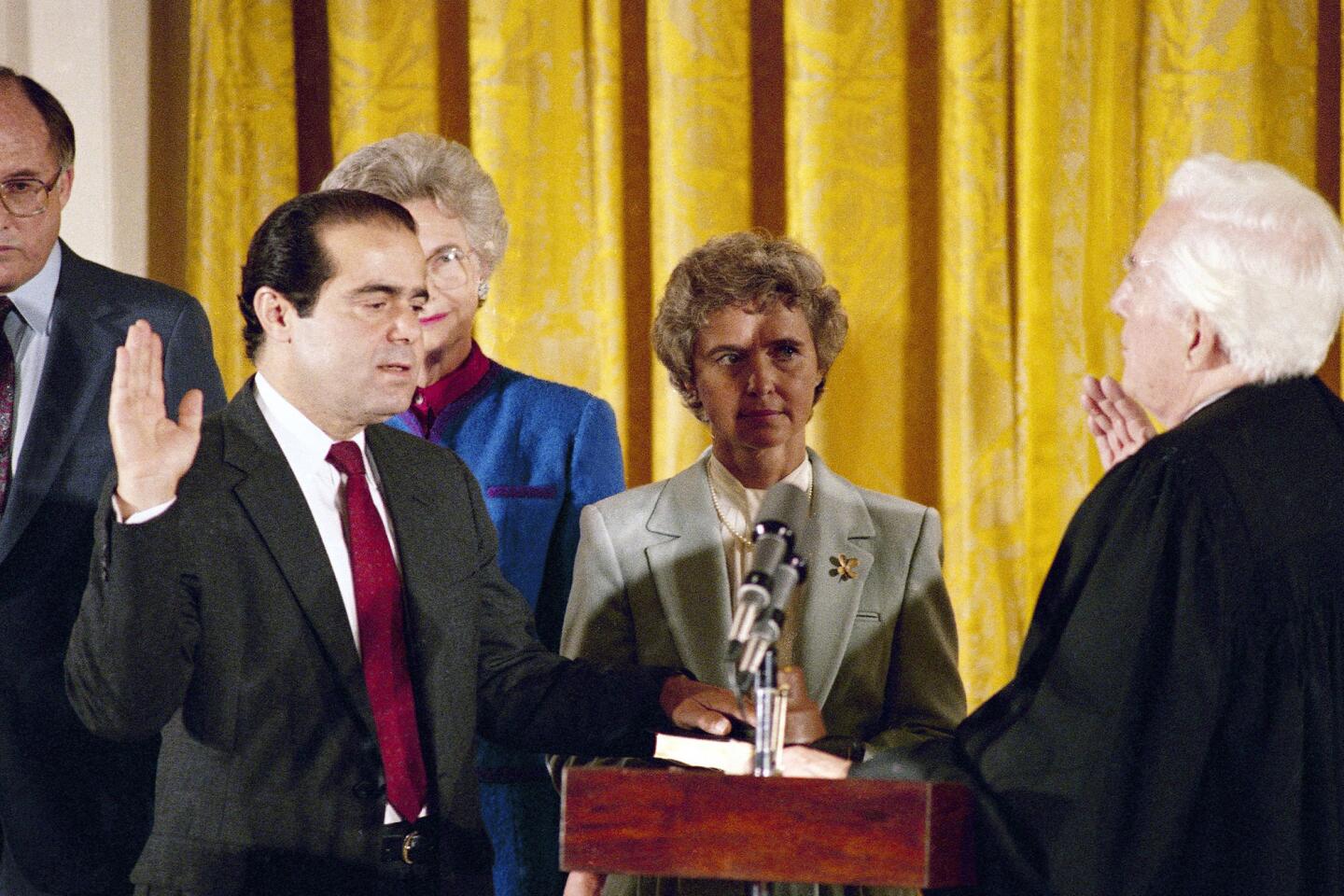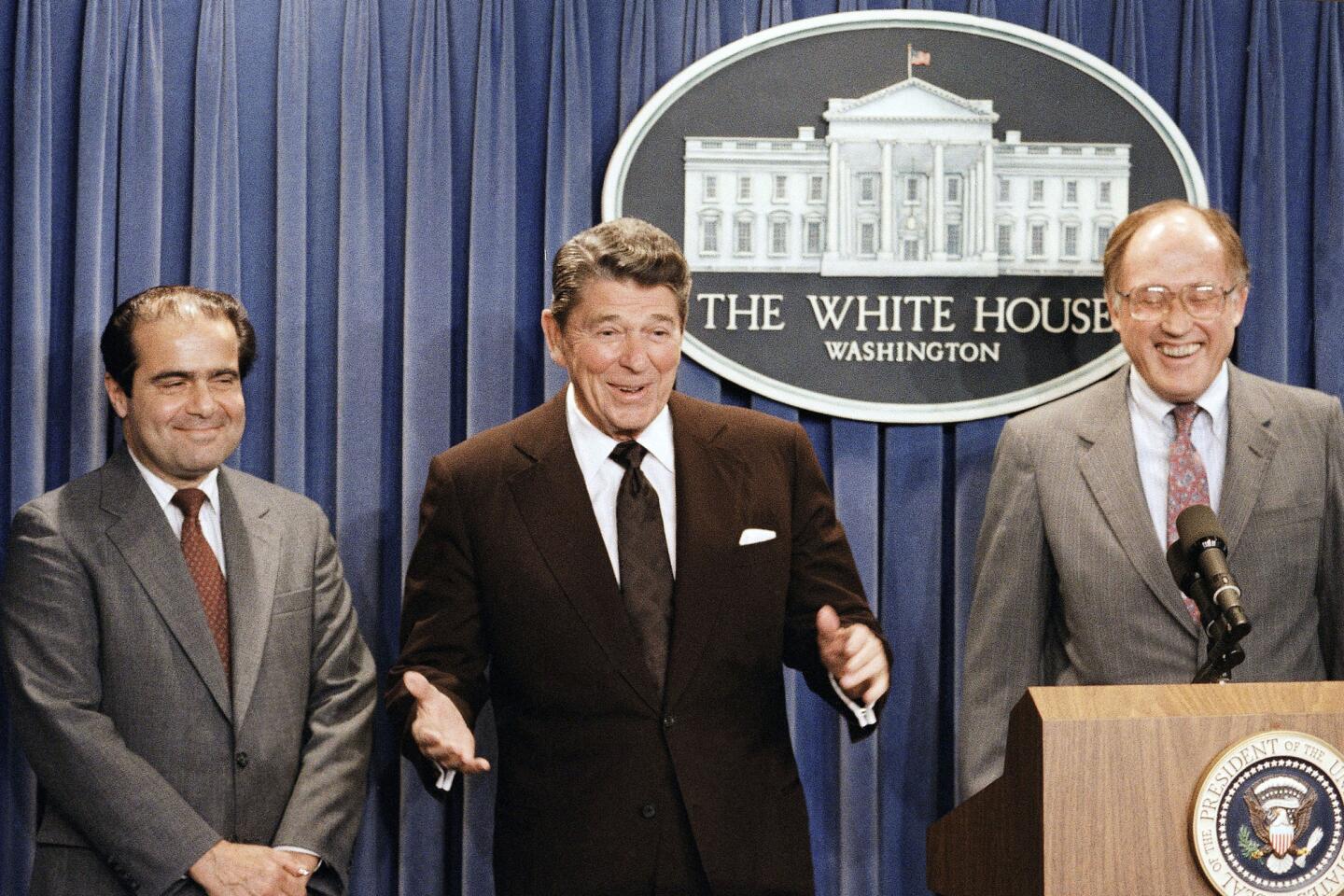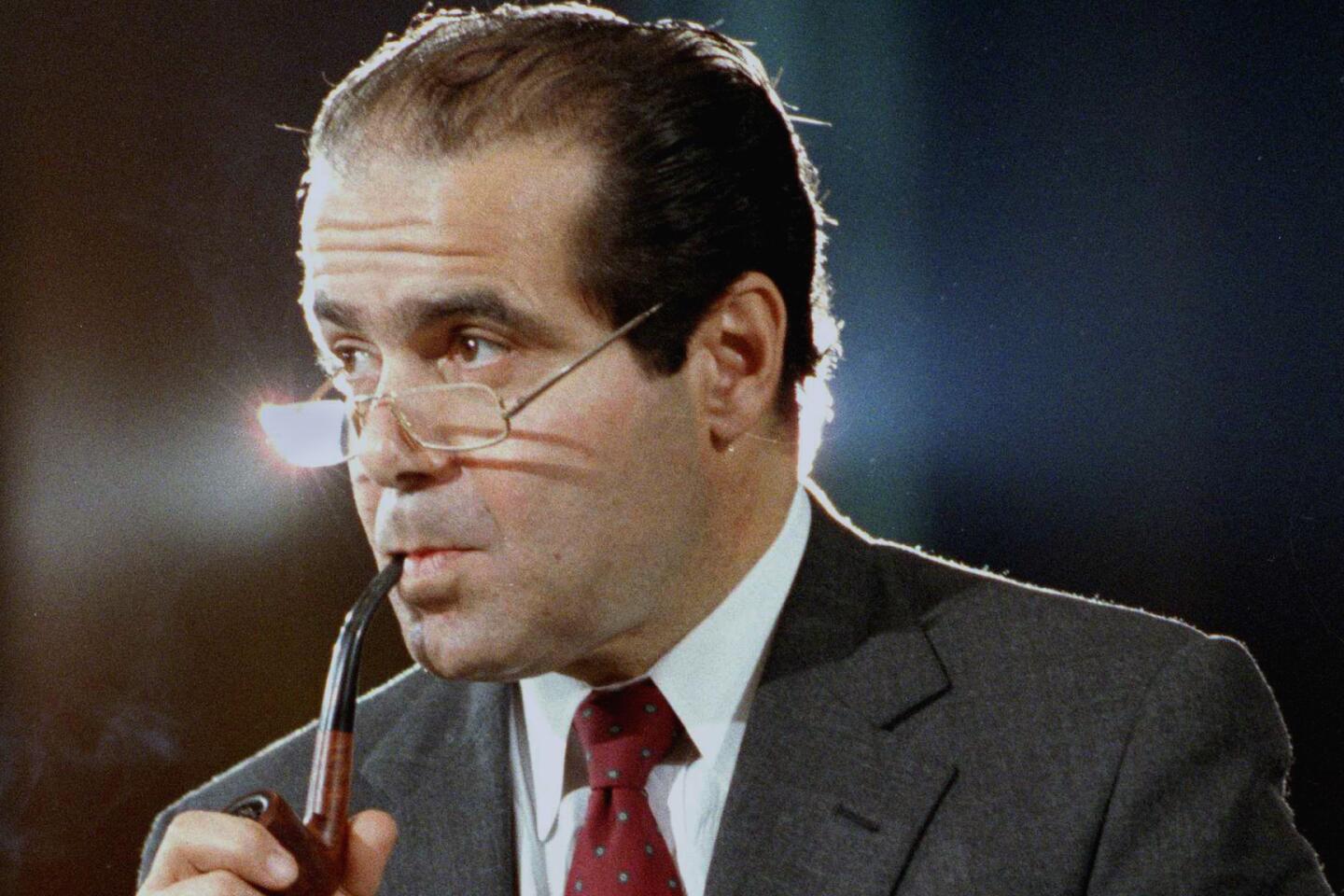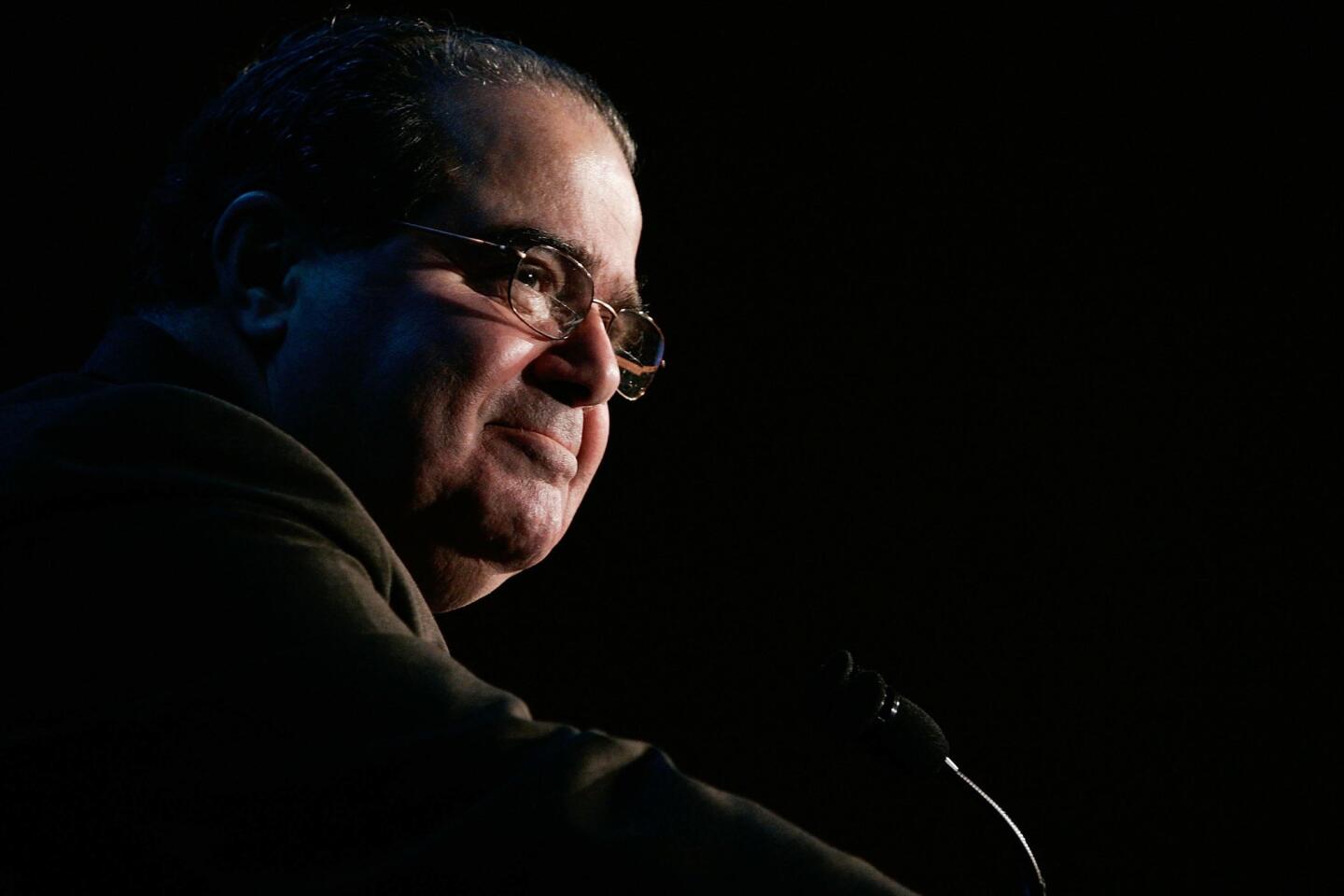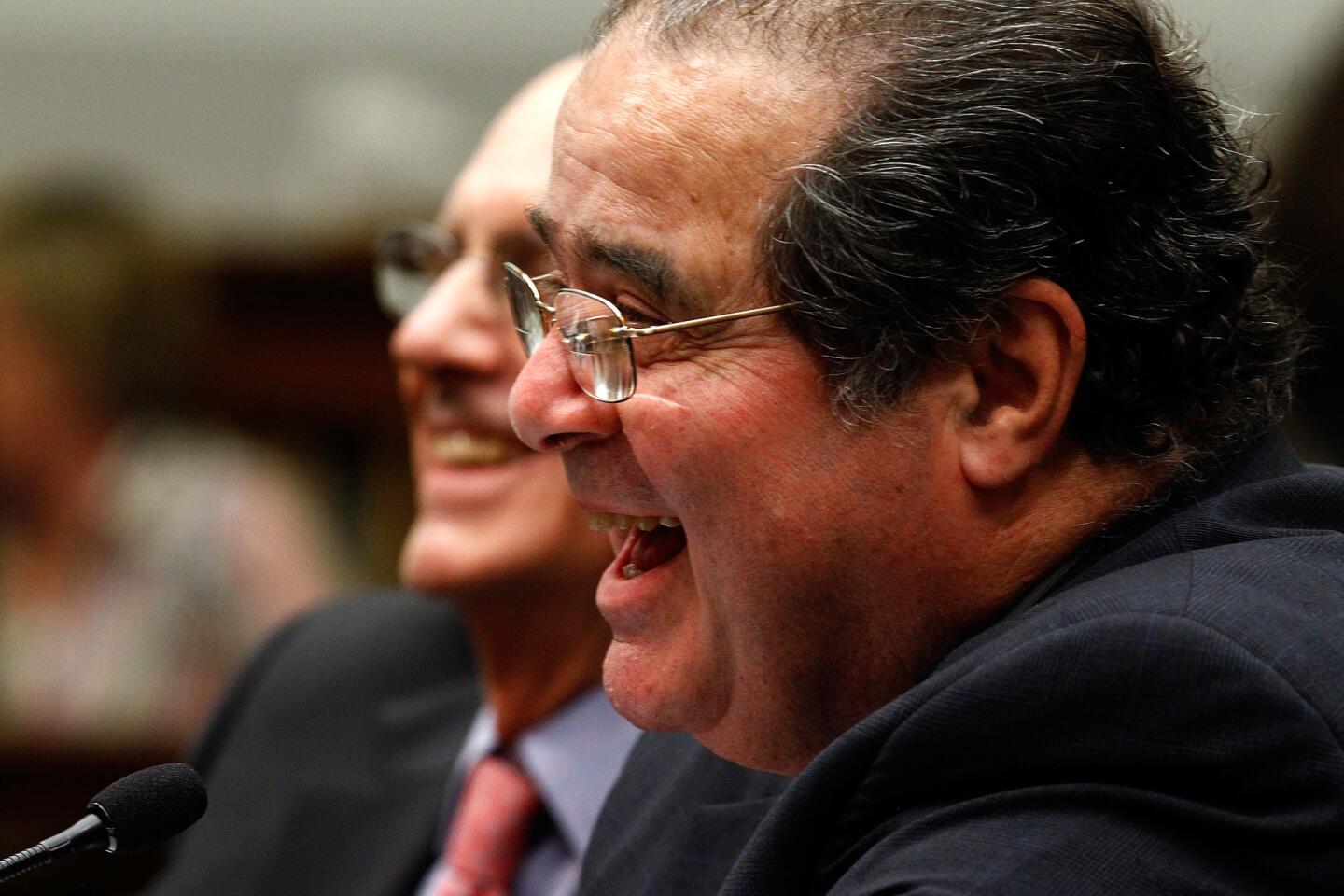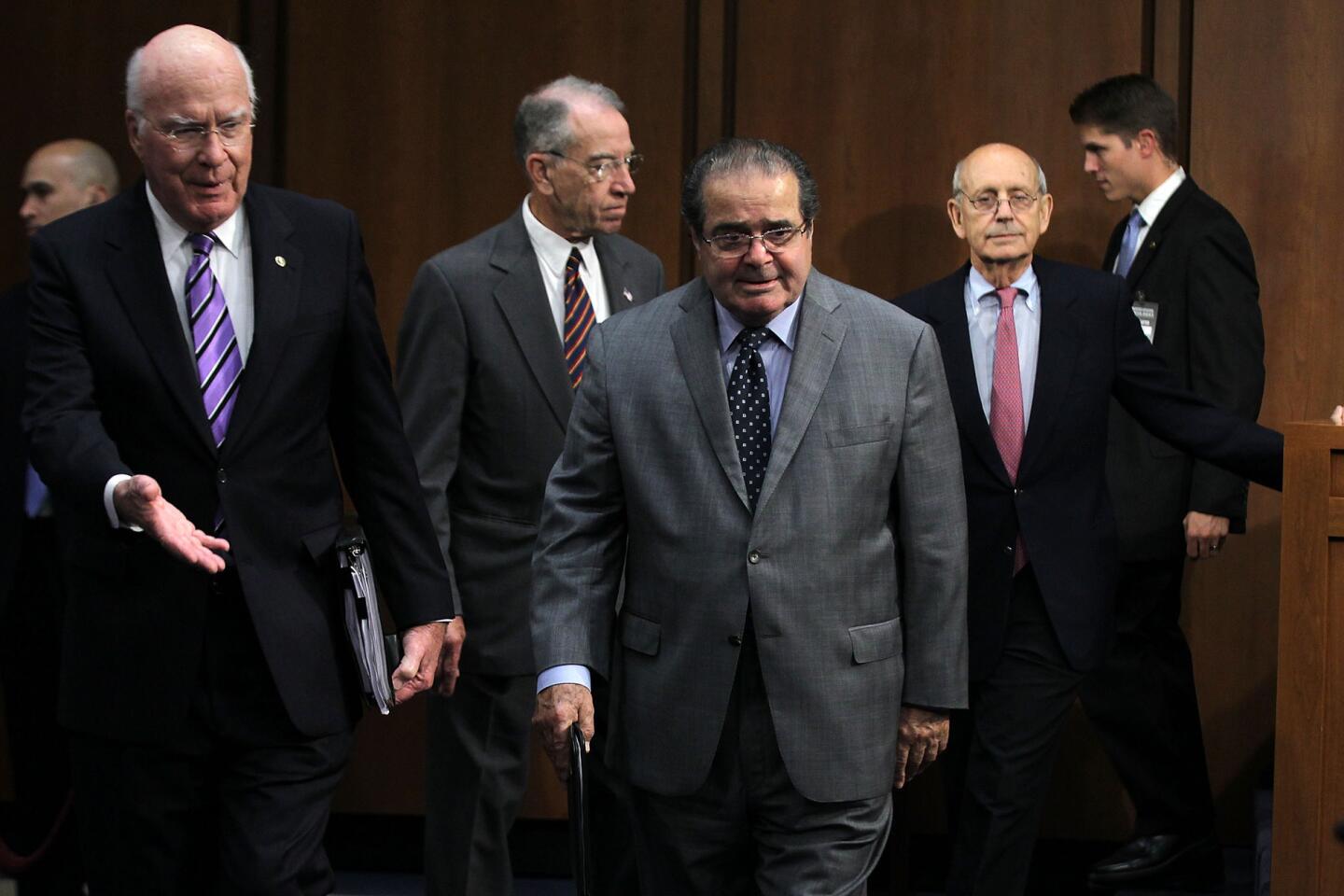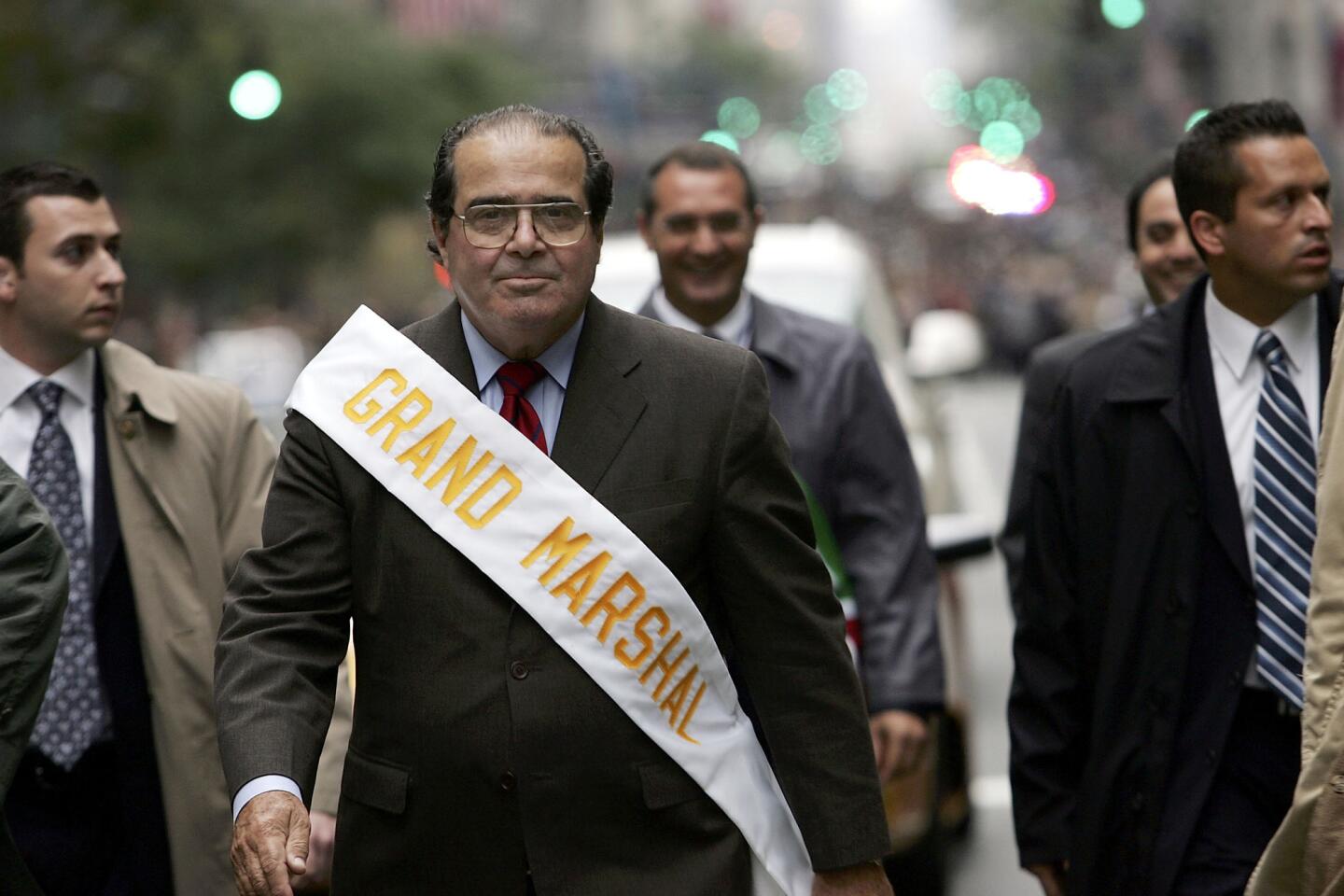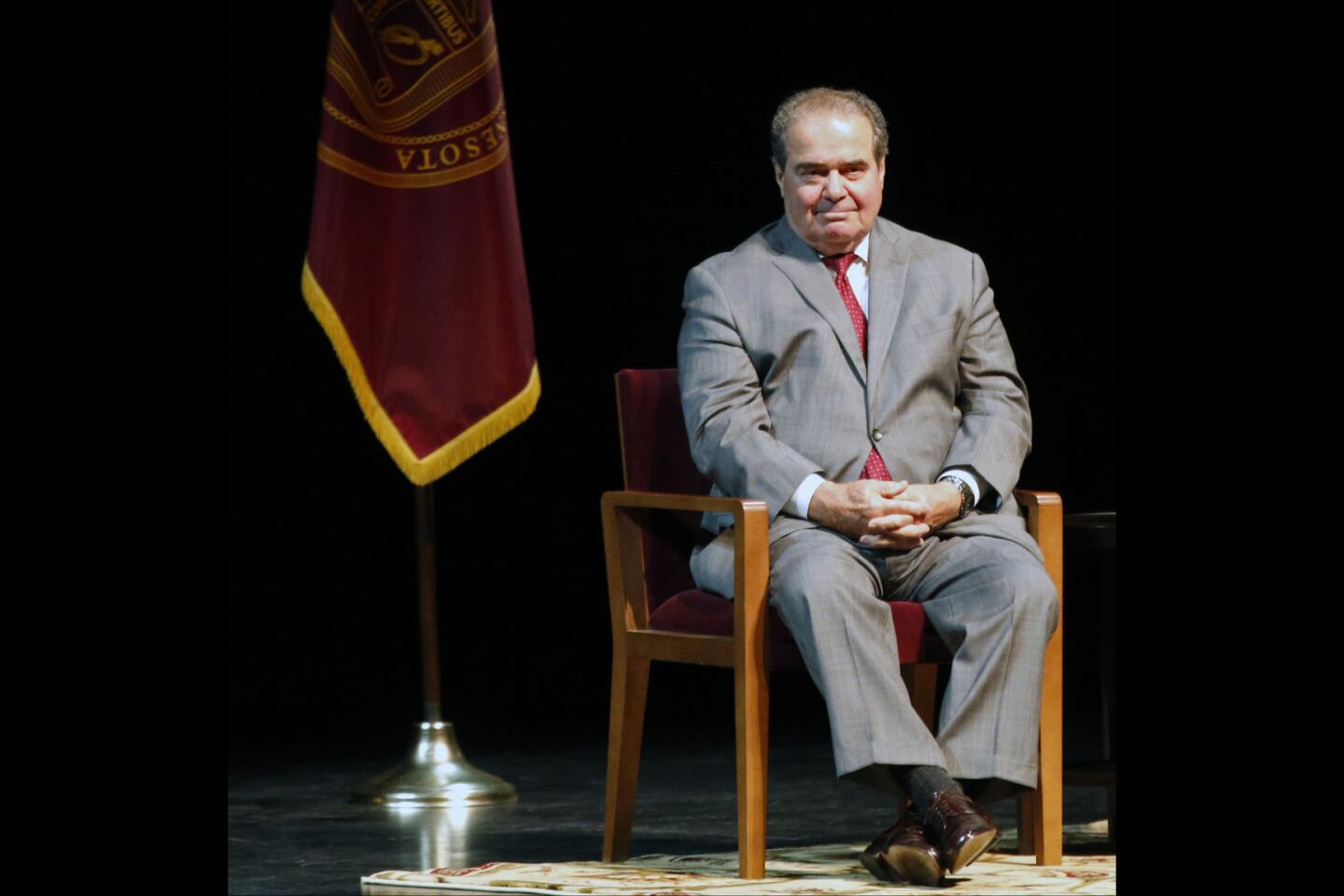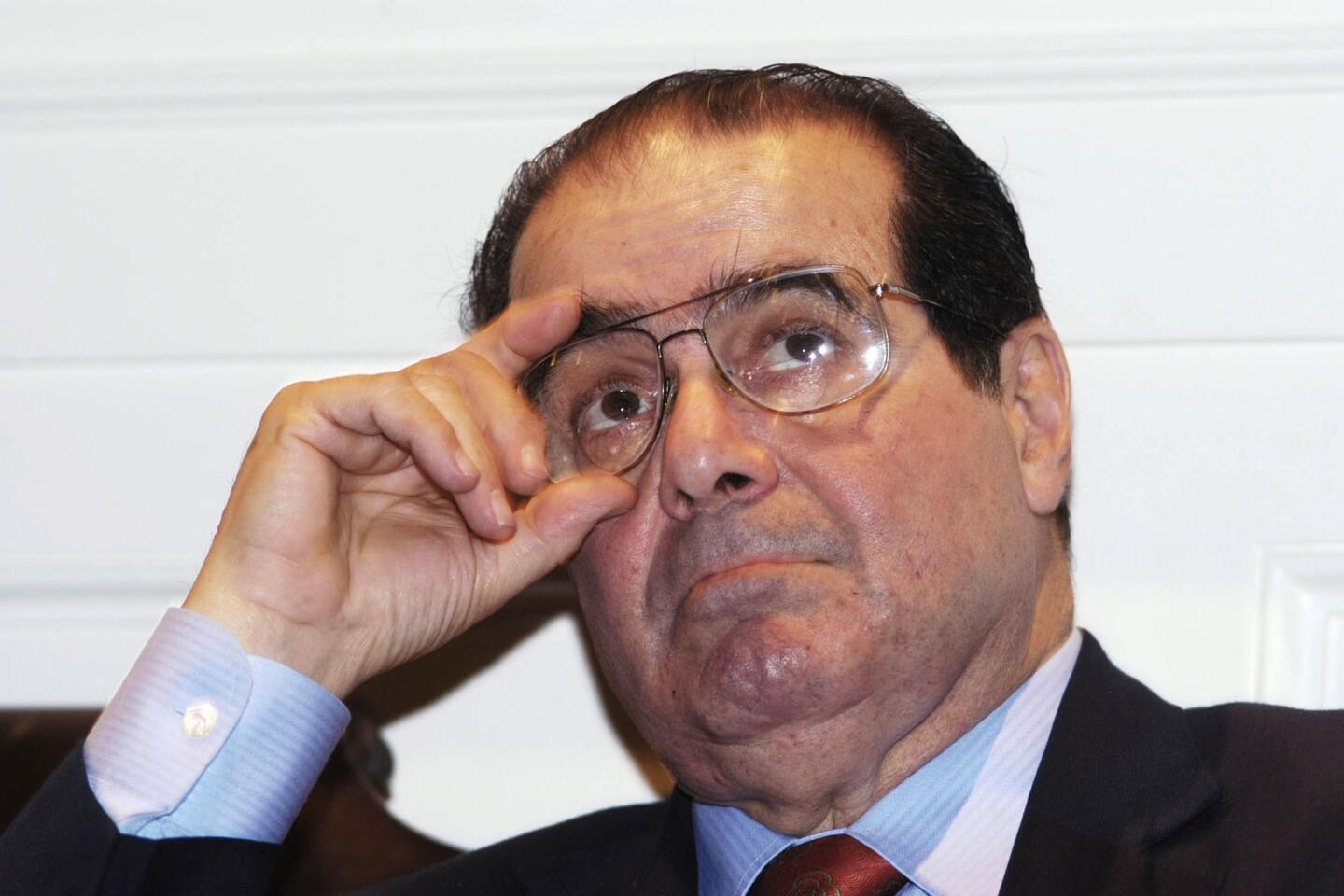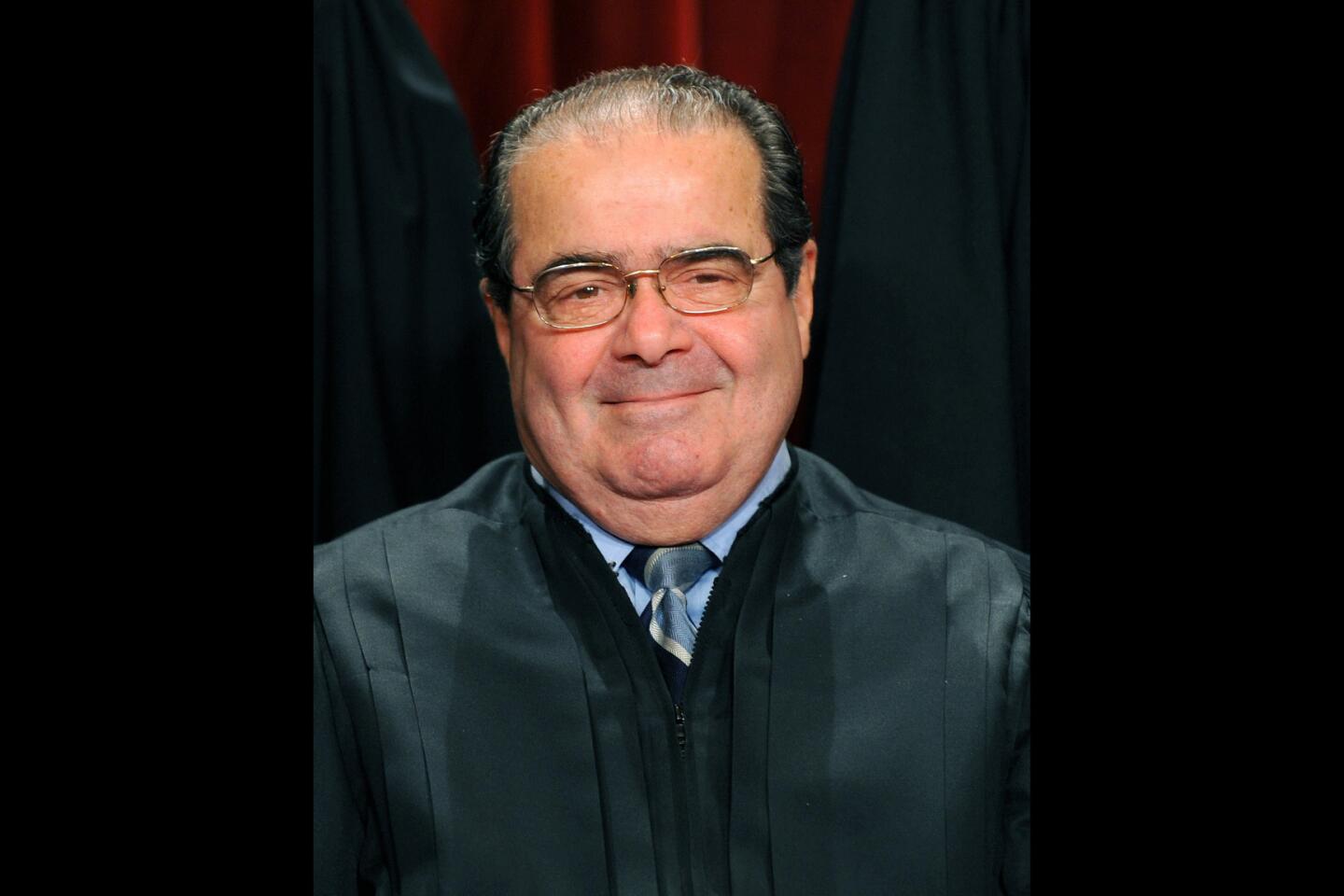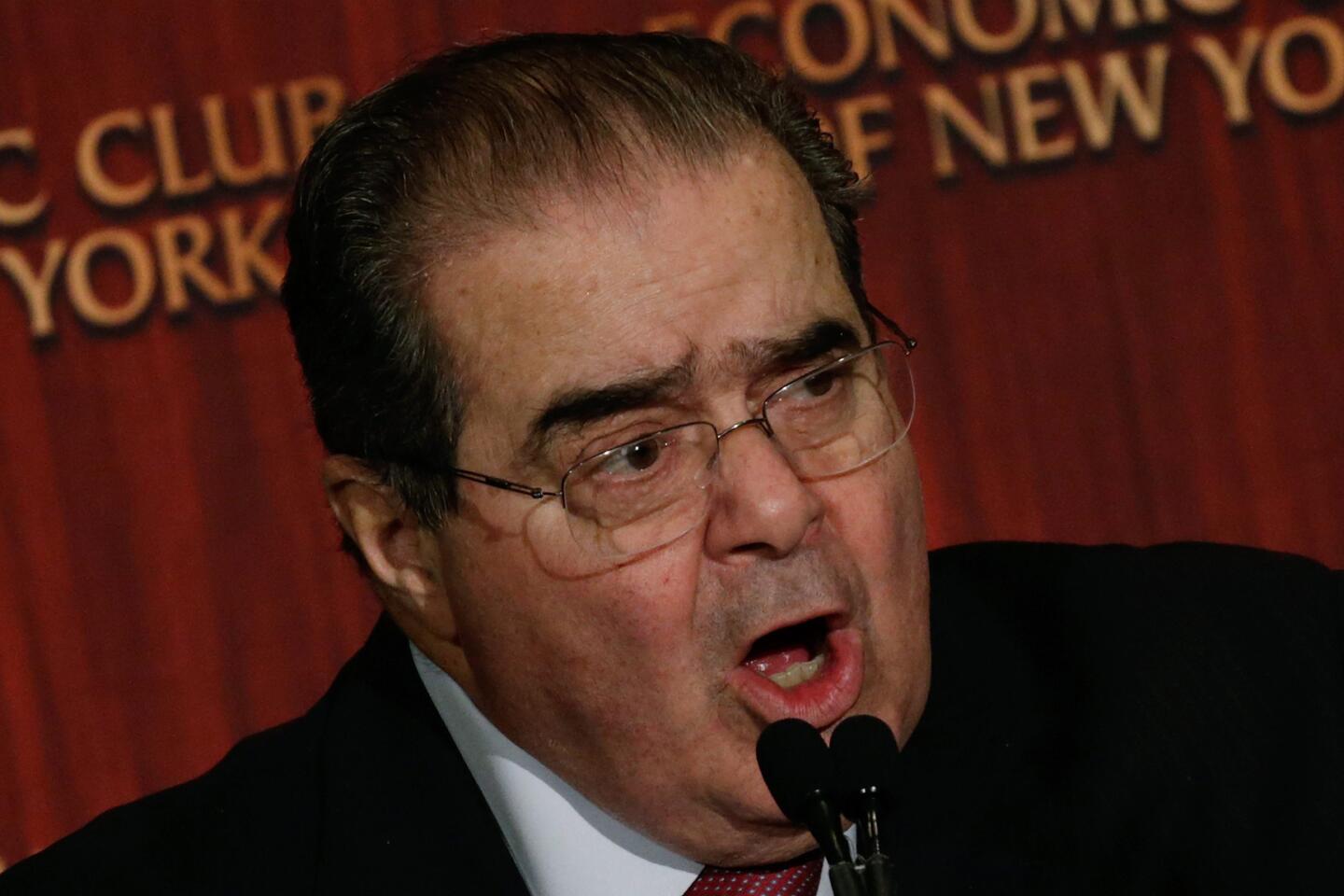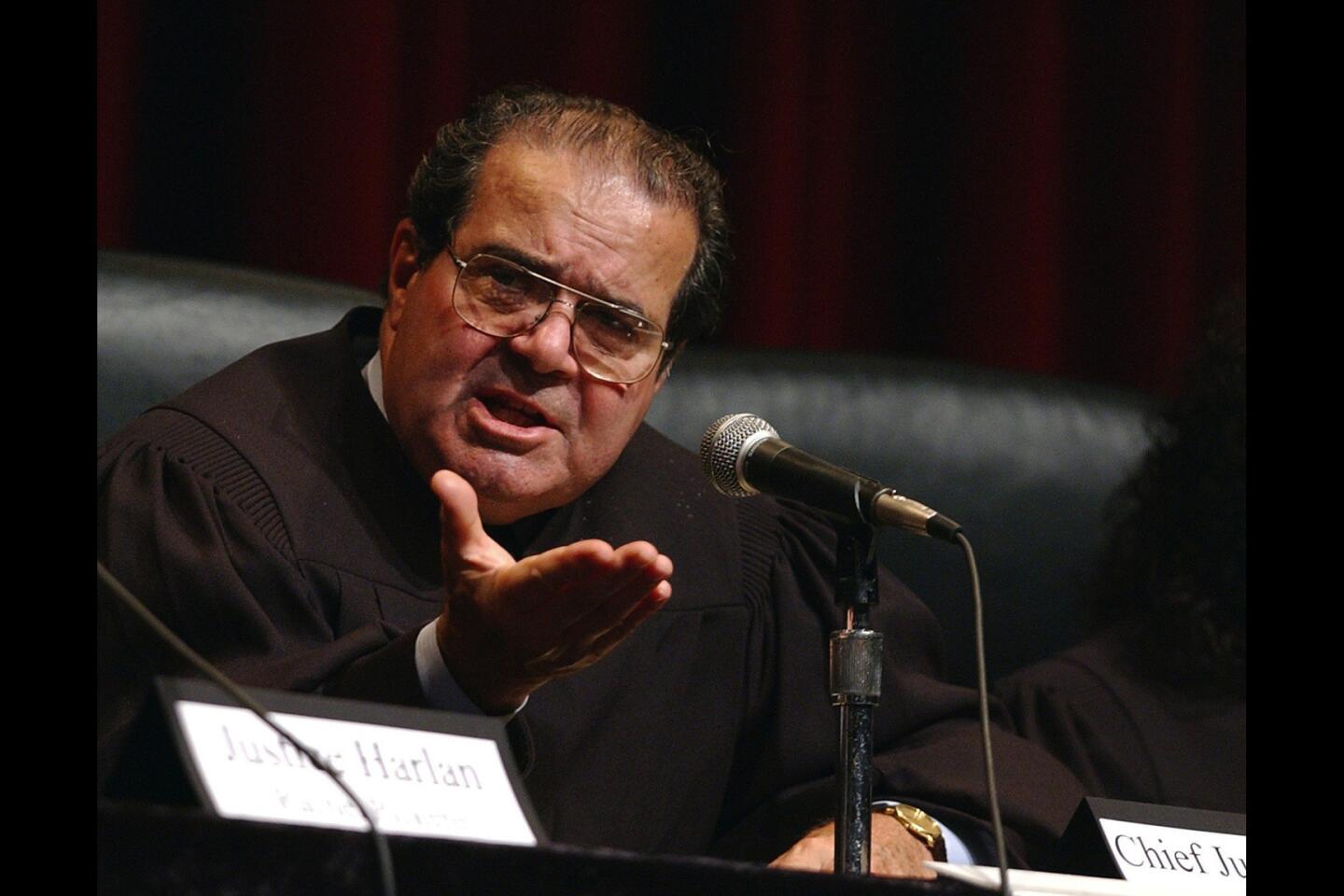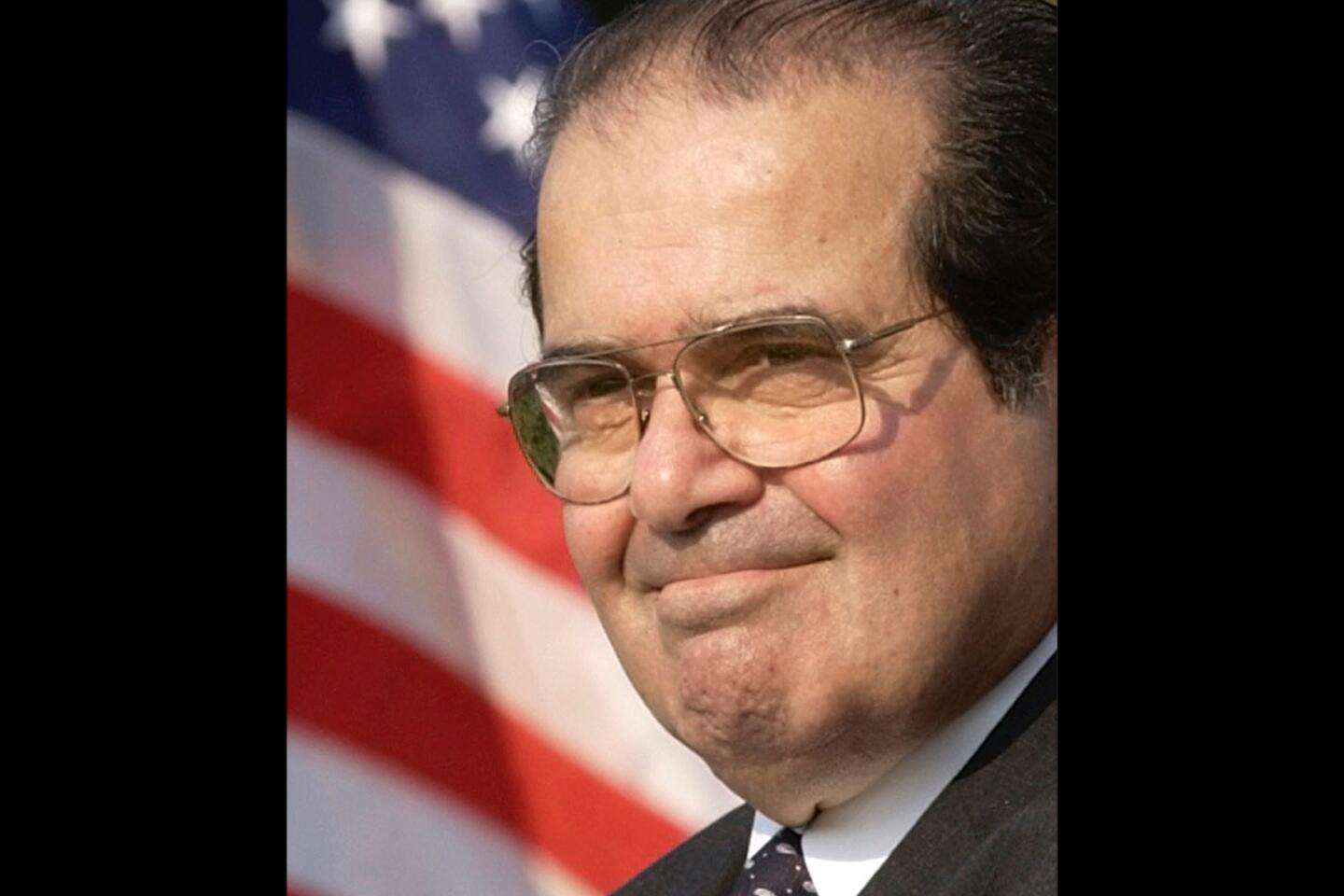In search for Scalia’s successor, Obama may see GOP opposition as incentive to select a liberal
- Share via
Reporting from Washington — As President Obama moves to replace the late Supreme Court Justice Antonin Scalia, the vow by Senate Republicans to block any nominee is providing him with a powerful incentive to focus on more liberal candidates.
Often, particularly when facing a Senate controlled by the other party, a president will seek a nominee who has bipartisan appeal. But if Republicans hold to their position of refusing to confirm anyone before the election, that sort of cross-party appeal has less utility.
With abortion, climate change, gun control, religious liberty and union rights all among the issues that have crowded onto the court’s docket of late, the stakes are high. Both sides have begun setting the grounds for an all-out political battle.
Democrats see a chance to have a liberal majority on the high court for the first time in more than four decades. Republicans fear the loss of a court that, despite some left-leaning rulings on issues such as same-sex marriage, has mostly stood as a conservative bulwark.
Sen. Ted Cruz of Texas spoke for many on the conservative side during the Republican candidates’ debate Saturday night, a few hours after Scalia’s death became publicly known, when he made this declaration:
“We’re not going to give up the U.S. Supreme Court for a generation” by approving an Obama nominee.
Republicans want Obama to leave the decision to the next president, arguing there is an 80-year precedent of not confirming high court justices during a presidential election year. Court experts, however, point to half a dozen examples since 1900, including under both Republican and Democratic presidents.
White House officials refused most public comment on the confirmation battle.
“As the president said last night, he takes his constitutional responsibility seriously and will approach this nomination with the time and rigor required,” said Deputy Press Secretary Eric Schultz. “Given that the Senate is currently in recess, we don’t expect the president to rush this through this week, but instead will do so in due time once the Senate returns from their recess.”
In his two previous Supreme Court selections, Obama took about a month to decide.
Behind the scenes, administration officials were starting to review a list of names that the White House counsel’s office and Justice Department keep at the ready. A key decision for Obama will be how liberal a candidate to select.
The vast majority of his judicial picks have been relatively moderate lawyers, somewhat to the disappointment of some liberal activists. Obama likes to point out that Justice Elena Kagan, his second nominee and a noted liberal, was championed by both conservatives and liberals on the Harvard Law School faculty when she was the dean there. Scalia himself had suggested Kagan’s name, Obama’s former top aide, David Axelrod, said Sunday on CNN.
Democrats predicted that whoever Obama picks will fit that mold and that Republicans will have difficulty blocking his candidate.
“I believe that many of the mainstream Republicans, when the president nominates a mainstream nominee, will not want to follow Mitch McConnell over the cliff,” said Sen. Charles E. Schumer of New York, the third-ranking Democrat in the Senate, referring to the chamber’s Republican leader.
“The American people don’t like this obstruction. When you go right off the bat and say, ‘I don’t care who he nominates, I am going to oppose him,’ that’s not going to fly,” Schumer said on ABC’s “This Week.”
Liberal activists, however, said Obama can and should select a nominee who can help energize the Democratic electorate to win the White House and possibly retake control of the Senate.
“He needs someone who can create a groundswell on the left and who will make the Republicans squirm,” said one Democrat close to the process who spoke on condition of anonymity to comment on the closed-door White House deliberations.
If Scalia had died last year, the heavy favorite would have been Judge Sri Srinivasan, a 48-year-old Obama appointee to the U.S. Court of Appeals in Washington. He was born in India but grew up in Lawrence, Kan., where he was a basketball star and a stellar student.
In Washington legal circles, he is seen as an extremely smart, even-tempered lawyer, relatively conservative for his party, who has worked well with Republicans and Democrats. He won a unanimous confirmation in the Senate three years ago, where he was praised by Cruz, among others. The two were law clerks at the Supreme Court the same year. He would also be the first Asian American to serve on the high court.
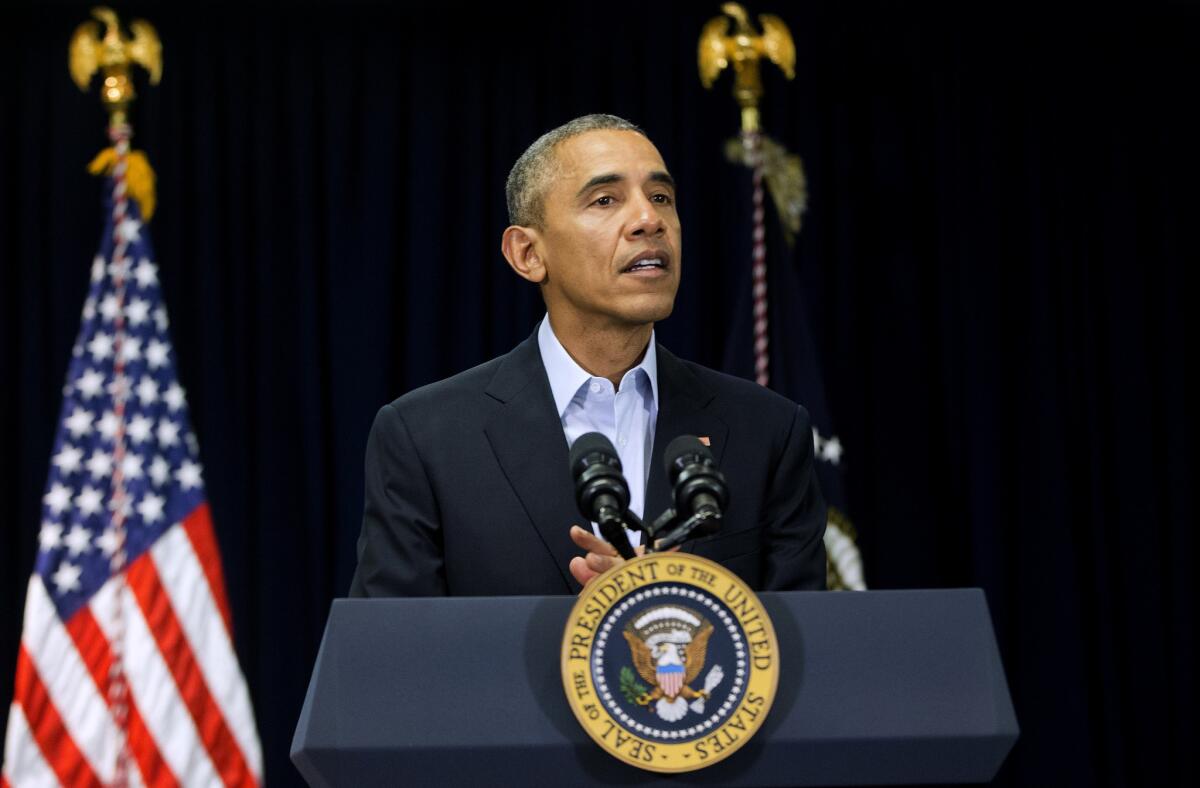
In his two previous Supreme Court selections, President Obama took about a month to decide on a nominee.
But one of Srinivasan’s chief assets — his bipartisan appeal — may be less important now. And his reputation for conservatism may make him less attractive than other candidates.
Some close watchers of the court and the confirmation process predict that the nation’s first African American president will want to nominate an African American to the court. If Republicans were seen as blocking a black nominee, that could help generate higher African American turnout in the election.
“I think the president personally will be very tempted to appoint a black justice,” said Washington attorney Tom Goldstein, founder of the Scotusblog, a widely respected website covering the Supreme Court. “The president likely sees value in providing a counterpoint to the court’s only black justice, the very conservative Clarence Thomas.”
Goldstein and others pointed to Judge Paul J. Watford, an Obama appointee to the U.S. 9th Circuit Court of Appeals, as a likely choice.
Watford was born in 1967 and grew up in Orange County. He has degrees from UC Berkeley and UCLA School of Law, and was a law clerk for Judge Alex Kozinski on the 9th Circuit in Pasadena, as well as for Justice Ruth Bader Ginsburg. He prosecuted frauds as an assistant U.S. attorney in Los Angeles and worked as an appellate lawyer at Munger, Tolles & Olson in Los Angeles.
Besides Watford, the president could look closely at several other well-qualified black candidates. They include Judge Robert Wilkins, whom Obama appointed to the same D.C. circuit court where Srinivasan sits.
Obama could turn to his Cabinet to select Jeh Johnson, 58, the secretary of Homeland Security, who formerly served as general counsel at the Defense Department, or to Atty. Gen. Loretta Lynch, 56.
Another candidate often mentioned is former Massachusetts Gov. Deval Patrick, 59, a friend of Obama’s who led the Justice Department’s civil rights division during the Clinton administration.
On Twitter: @DavidGSavage
Staff writers Christi Parsons and Michael A. Memoli contributed to this report.
More to Read
Sign up for Essential California
The most important California stories and recommendations in your inbox every morning.
You may occasionally receive promotional content from the Los Angeles Times.
